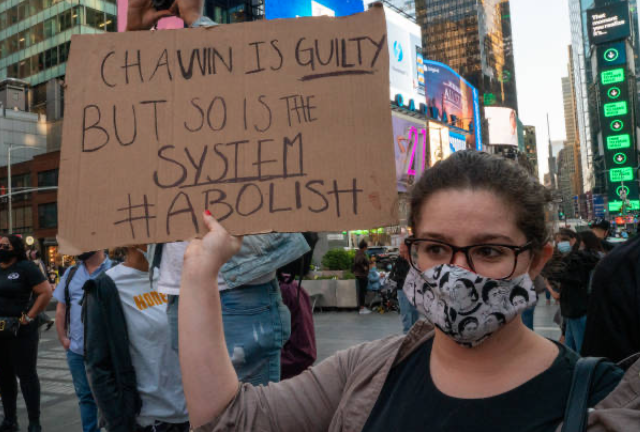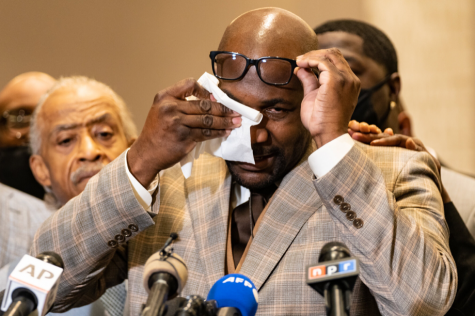
Amy Parr | Head Editor
April 23, 2021
The world will not soon forget the horror it felt as it watched Derek Chauvin kneel on George Floyd’s neck on the sidewalk in Minneapolis in May 2020, and that horror translated into an unprecedented movement calling for both accountability and change. Nearly a year later, the trial for the case that changed the world began.
The first week of the trial mainly consisted of emotional bystander witnesses, all of whom helped the prosecution’s villanous portrtayal of Chauvin. During the second week of the trial, police officers condemned Chauvin’s use of force and medical professionals ruled that “they saw no evidence that Mr. Floyd died of an overdose,” further diminishing the defense’s chances of redirecting the blame for Floyd’s death. During the third and final week, the defense and the prosecution gave their closing arguments, in which Chauvin’s lawyer, Eric Nelson, attempted to convince jurors of the stress a police officer would be under in Chauvin’s situation, while the prosecution simply asked the jury to interpret the compelling evidence with care.
“The clarity of the evidence and the widespread coverage of the case created too great of a challenge for defense,” junior Charlotte Fuertes said. “With social media being able to raise awareness of the issue and spark a fiery call for change, it made the evidence impossible to dismiss.”
In preparation for the verdict, Minneapolis prepared for protests by sending in National Guard troops, switching all public schools to online learning for the week, and increasing protection around police stations. Fortunately, the anxiety of potential revolt was short-lived as the deliberation process took only eleven hours.
The jury took less than two days to come up with a unanimous verdict, convicting the former police officer of second-degree manslaughter, third-degree murder, and, most importantly second-degree unintentional murder. But what exactly do these charges mean?
By convicting Chauvin of third-degree murder, the jury has ruled that Chauvin killed Floyd by “perpetrating an act imminently dangeorus to others and evincing a depraved mind, without regard for human life.” The next charge, that of second-degree manslaughter, confirmed that Chauvin behaved with “culpable negligence whereby the person creates an unreasonable risk, and consciously takes chances of causing death or great bodily harm to another.” The final, and most considerable, charge of second-degree unintentional murder convicted Chauvin of unintentionally killing Floyd, while committing a felony of third-degree assault.

“When I heard that Chauvin got convicted on all these charges, I obviously felt very happy, but it also reminded me of all the work that must be done,” junior Madeline McDonald said. “It’s a small step in the right direction and a sign that things are changing.” Hopefully Chauvin’s trial will become the rule and not the exception to the judicial response to police brutality. Regardless, Chauvin’s fate is still up in the air as the official sentencing won’t happen for another eight weeks.
Since there are multiple charges, there are a variety of possible outcomes. Due to Chauvin’s “clean” criminal record, he will likely face minimal sentencing. For third degree murder, the maximum sentence is 25 years and for second-degree unintentional murder the maximum sentence is 40 years, while the charge of manslaughter could receive ten years. However, according to Minnesota’s sentencing guidelines, it’s probable that Chauvin will get around twelve years apiece for the murder charges and four years for manslaughter. Additionally, these guidelines suggest that these charges will be served at the same time and not consecutively.
“I hope that this case will inspire change within the police system,” Fuertes said. “I believe that as a society, we should not try to deny our faults due to fear of or discomfort with change. It is vital that we recognize what is occurring and strive to become a nation where everyone can feel equally protected.”

Leave a Reply